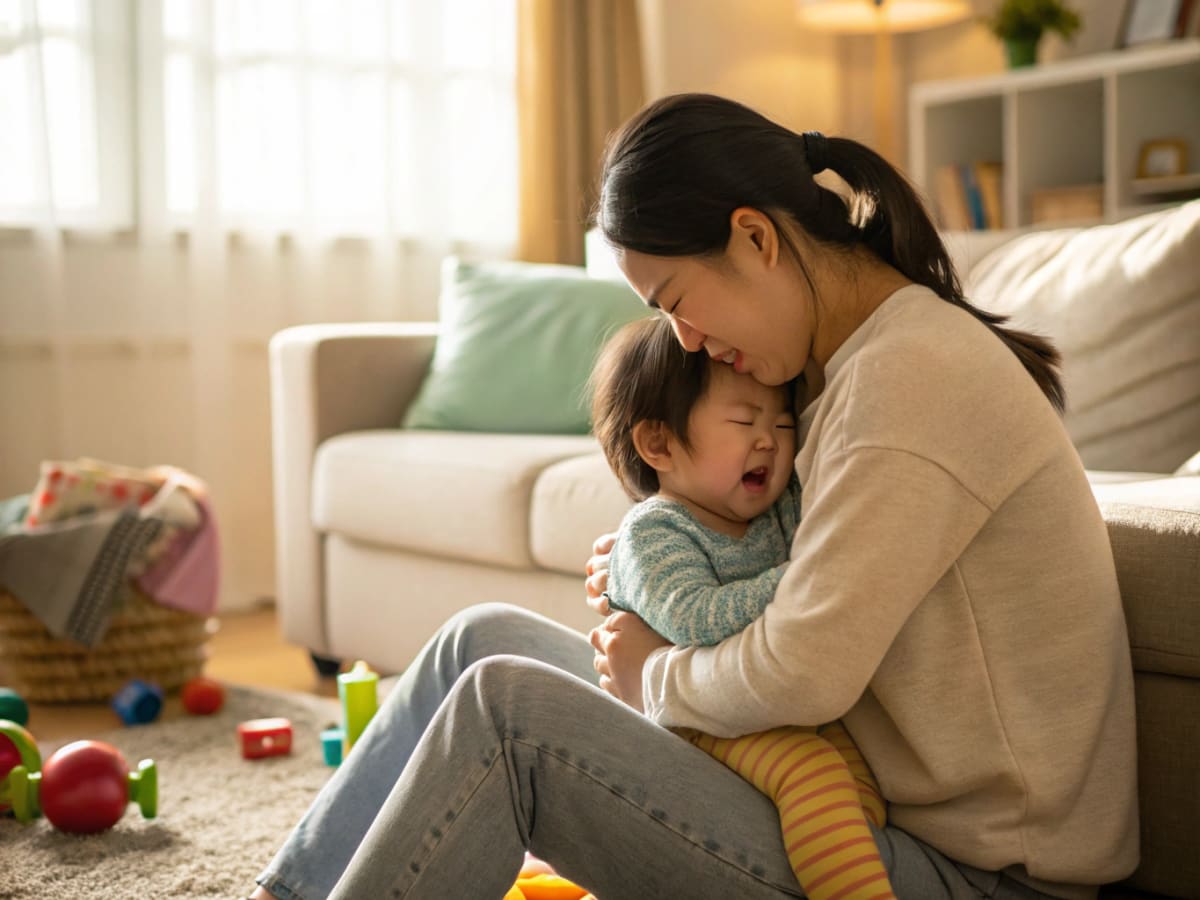
“Don’t go, Mom!” How to Warmly Embrace Your Child’s Separation Anxiety
“I’m just going to the bathroom for a moment.” “I’ll be right back after taking out the trash.” When these short words bring your child to tears and they cling desperately, a parent’s mind becomes complicated. You might worry, Did I fail in forming an attachment, or is there something wrong with my child? But this behavior is entirely natural and a part of a healthy developmental process. Today, let’s think together about warm and wise ways to cope with your child’s separation anxiety, so both you and your child can feel a little more at ease.
Why Does My Child Find Goodbyes Difficult?
Your child finding it particularly hard to be separated from mom and dad is due to a natural emotion called ‘separation anxiety.’ This usually begins around eight months old and peaks around eighteen months. During this period, children have a very stable attachment formation with their primary caregiver, perceiving the parent as the safest presence in the world. Thus, when the parent is out of sight, the child feels immense anxiety and fear, as if the whole world has disappeared.
“My child’s anxiety seems severe. Could it be lack of affection?”
On the contrary, separation anxiety is a healthy signal showing how much your child trusts and loves you. Children obtain the courage to explore the world only when they have the secure base of a parent. Therefore, instead of viewing your child’s anxiety as problematic behavior, it’s crucial to first understand and acknowledge their feelings, thinking ‘My child really trusts and relies on me.’

Parental Mindset During Separation Anxiety
Facing your child’s separation anxiety, a consistent parental attitude becomes the key to providing stability. Children learn to regulate their emotions by observing their parents’ reactions.
Acknowledge Their Feelings as They Are
You shouldn’t suppress or ignore your child’s emotions by saying things like “Stop crying!” or “Why are you crying when you’re so old?”. The priority is to read and empathize with your child’s anxious feelings. Express their emotions verbally with phrases like “You don’t want mom to leave, you’re really anxious,” and give them a warm hug. Experiencing respect for their feelings builds the foundation for children to develop their ability to manage their emotions.
Avoid ‘Surprise Exits,’ Ensure Kind Goodbyes
Disappearing without your child noticing might be easier temporarily but can increase their anxiety. The child might be unwilling to leave you for even a moment, fearing when you might vanish. Always make sure to maintain eye contact and offer a clear and kind goodbye like “Mom is leaving, see you later” before departing. Creating a consistent farewell ritual (e.g., waving, a high five) helps the child anticipate and accept the situation.
Overcoming Separation Anxiety Through Daily Activities
You can alleviate your child’s separation anxiety and strengthen their secure attachment through simple everyday play, without complex methods.
Peekaboo and Hide-and-Seek
Peekaboo helps children enjoyably learn the concept of object permanence, that things reappear after disappearing. Simply covering your face with your hands or a cloth and revealing it with a “Peekaboo!” makes the child experience a fun encounter with separation. As they grow, try a simple hide-and-seek play indoors. Through the process of seeking mom and the pleasure of reunion, the child can develop a positive belief that temporary partings always lead to joyful reunions.
Practice Short Separations
Rather than attempting long separations at once, practice brief separations repeatedly. Say, “Mom will bring a doll from that room, wait for 10 seconds” and return precisely as promised. Once the child becomes accustomed, gradually increase the time, building a solid trust that parents will always return.
Are There Signs That Require Professional Help?
While most separation anxiety naturally resolves, there are instances when professional help should be considered. If your child’s anxiety severely affects everyday activities, persists with age, consider consulting an expert.
For example, if anxiety prevents proper eating or sleeping, or if they express extreme reluctance for daily or school activities with physical symptoms such as headaches or stomachaches, or if they find it particularly hard to separate from parents even after entering elementary school, it is beneficial to seek professional advice rather than silently suffering alone. This does not highlight a problem in the child but rather actively expresses love aiming for a healthier, happier family.
The child encountering this phase, and you supporting them are both growing. Signals of anxiety from your child will gradually transform into stability and trust through your warm understanding and consistent love. Today’s reassurance will be a firm stepping stone for your child to venture into the world.
The separation anxiety phase will eventually pass, but in this time, the warm encouragement and consistent attitude from parents become a significant strength for the child. Understanding and practicing this is a valuable parenting tip. If you have more inquiries about overcoming separation anxiety together, please consult MOM-i at Consultation Request.
The first choice for your precious baby, MOM-i BabyCam!
Monitor in real-time 24/7 for peace of mind anywhere, anytime~
The safe IP camera designed exclusively for infants is
the most reliable eye protecting our child’s day.
For inquiries: momi@emtake.com